“Obama and the Bishops” is a terrific essay by Father Richard John Neuhaus, Editor-in-Chief of First Things, on the bishops meeting for their annual meeting in Baltimore. Give some time to reading and considering what Father wrote.
Category: Theology
A Jesuit at the Holy Office
|
After two Salesians, now a son of Saint Ignatius will be second in command of the first of the Congregations of the Roman Curia. An interview with Archbishop Luis Francisco Ladaria Ferrer |
by Gianni Cardinale
After two Salesians, the Congregation for the Doctrine of the Faith has a Jesuit as its new secretary. On 9 July in fact Benedict XVI appointed as number two in the Department, that he himself directed from 1981 to 2005, the Spaniard Luis Francisco Ladaria Ferrer, 64 years old, originally from Manacor, the second city, after Palma, of the island of Majorca in the Balearic Islands.
Ladaria takes the place of the Salesian Angelo Amato, promoted Prefect of the Congregation for the Causes of Saints, who in turn succeeded another son of Don Bosco, the then Archbishop Tarcisio Bertone, who as Cardinal Secretary of State consecrated Ladaria bishop in the Basilica of Saint John Lateran on July 26.
30Days met the new secretary, in the Palace of the Holy Office, on his return from vacation, passed mostly in his homeland. In answer to the observation that he didn’t look very tanned, Monsignor Ladaria smilingly said: “That comes of the fact that I love the sea, much less the sun…”. Before the interview Ladaria spoke of his origins, explaining that, although his family has been rooted for generations in the Balearic Islands, perhaps his ancestors came from the Kingdom of Naples, and more specifically from the Gulf of Policastro. But the pleasantries end there. And the questions begin.
Your Excellency, how did your vocation come about and why did you choose the Society of Jesus?
Luis Francisco Ladaria Ferrer: Perhaps the word “choose” is not correct. It was not I who chose but I saw a road in front of me and set out on it. A road, that of vocation, that I began to see when I attended the Jesuit College in Palma de Mallorca and then while studying Law in Madrid. I studied law but I realized that was not what I wanted. I wanted to become a priest and I liked the Society of Jesus which I knew. And so it was a path open before me that I set out on almost naturally.
Was your family very religious?
LADARIA FERRER: Fairly.
Was there some priest figure who particularly influenced you?
LADARIA FERRER: Certainly, I have before me the faces of the fathers of the College I attended, the old College of Mount Zion, founded in 1561, but it was rather the whole environment, the air one breathed, that brought me to devote myself entirely to God.
You took your religious vows in 1968. What memory do you have of that year, so turbulent at least outside Spain?
LADARIA FERRER: It was a turbulent year in Spain also. But I quietly took my vows, without paying too much attention to the the turbulence. I liked studying and I studied.
Did you ever feel the fascination of ’68?
LADARIA FERRER: Maybe we are all a little conditioned by ’68, but in my case not in any special way.
Who were your teachers?
LADARIA FERRER: I am pleased to remember a few. In Frankfurt in Germany, where I studied theology, I had as professors Father Grillmeier, who then became a cardinal, who was a great scholar of Dogma, Father Otto Semmelroth and Father Herman Josef Sieben, at the beginning of his academic career, who would then become one of the world’s greatest experts on the concept of Council. In Rome I did my graduate thesis with Father Antonio Orbe, a great patrologist, and I had as professors Fathers Juan Alfaro and Zoltan Alszeghy.
You also studied in Germany. Did you ever meet Professor Ratzinger?
LADARIA FERRER: Not personally. But I knew his writings. In particular his Introduction to Christianity which was his best known work, but also his book on the People of God. I remember that even in our faculty lecture notes of some of the courses of the then Professor Ratzinger circulated.
And when did you personally come to know the current Pontiff?
LADARIA FERRER: In 1992 when I became a member of the International Theological Commission. I recall with pleasure the detailed discussions that took place on the subject of relations between Christianity and other religions. The intervention of Cardinal Ratzinger was always very precise and profound and the discussion was always at a very high level. The work of that Commission is very interesting both for the topics dealt with, always of great importance, and for the international and Catholic air, that one breathes there.
Did you have a role in the drafting of Dominus Iesus?
LADARIA FERRER: No.
Your degree at the Gregorian was on Saint Hilary of Poitiers. Why that choice and what attracted you to that saint?
LADARIA FERRER: The topic was proposed by Fr Orbe who was interested in that Father of the Church. I was lucky because there was not a great bibliography on Saint Hilary, so I could better devote myself to reading his original texts directly. Saint Hilary was not studied enough at the time, but since then many works about him and many translations have appeared, especially in France. And yet he is the demonstration that the Patristic era in the Latin Church did not begin with St. Augustine, who indeed knew, and often cited, Saint Hilary.
What is the relevance of Saint Hilary?
LADARIA FERRER: It doesn’t take much effort to find out the relevance of the Fathers of the Church. We have to read and savor them to be better able to approach the freshness of the Gospel message, Jesus, and that is of permanent value rather than something tied to what is topical, which by its nature is variable, changing minute by minute. The Fathers of the Church are a source that springs in an era closer to the apostolic one. That’s what makes them always relevant.
Father Orbe was an expert on Saint Irenaeus and Gnosticism …
LADARIA FERRER: In effect, he was one of the greatest experts on the subject. He wrote many books on these subjects, to be honest often complicated because the material is difficult.
For many years you were a teacher at the Gregorian and vice-rector. What did you learn in all these years?
LADARIA FERRER: The fact that I was vice-rector for eight years is not very important. What is important was the teaching, the supervision of the theses. The Gregorian taught me to live in an international environment with students from over one hundred countries, of different languages, races and cultures. All united by the love of study, but above all of the Lord and His Church. In a real university students not only learn from professors, but also the reverse occurs. And I learned a lot from my students.
When your appointment was made public, John Allen Jr. of the National Catholic Reporter collected some opinions on you from your colleagues. Some have called you gentle and affable …
LADARIA FERRER: I must say that I try to be, but it must be up to others to say whether I succeed …
There are also those who described you as a moderate conservative and theologically centrist. Do you recognize yourself in those descriptions?
LADARIA FERRER: I must say that I don’t like extremisms, either progressive, or traditionalist ones. I believe that there is a via media, which is taken by the majority of professors of Theology in Rome and in the Church in general, which I think is the correct path to take, even if each of us has his own peculiarities, because, thanks be to God, we do not repeat, we are not clones.
Your appointment did not please the traditionalist world. In Spain the theologian Don José María Iraburu accused your Theology of original sin and grace of not conforming to the doctrine of the Church, while the periodical “Sì sì No no” even wrote that your book Theological Anthropology “is completely outside the Catholic dogmatic tradition.” Are you concerned about these judgments?
LADARIA FERRER: Everyone is free to criticize and make the judgments they want. If you ask me if I’m concerned I have to say that these opinions don’t concern me too much. Besides, if I was appointed to this office, I must presume that my works do not deserve these judgments.
You gained a certain notoriety when the Theological Commission published the document on the salvation of children who died before baptism. In it Limbo was finally thrown out of the Magisterium?
LADARIA FERRER: The International Theological Commission has no power to throw anything or anybody out. Although it is formed not by private theologians but ones appointed by the Pope, its conclusions do not have magisterial value. The document in question reiterates that the doctrine of Limbo, which for centuries was accepted by the majority and dominant in theological reflection, was never defined dogmatically and therefore was never a part of the infallible magisterium. And it does not mean that those who still want to continue to speak of Limbo are outside the Catholic Church because of it. That said, however, the Theological Commission, considering together the revealed data and the universal salvific will of God and the universal mediation of Christ, wrote that there are more appropriate ways to address the issue of the fate of children who die without having received baptism, for whom a hope of salvation cannot be ruled out. These conclusions are not new to tell the truth, they originated around the time of the Council, but bring together the fruits of a very broad theological consensus today.
How do you feel about being the first Jesuit to hold this position?
LADARIA FERRER: I must say that I didn’t pose myself the problem. Even if it’s true that it seems no Jesuit has ever held the position. I believe that the Holy Father chose me not as a Jesuit but because, I imagine, I seemed to him the best person.
How did you learn of the appointment?
LADARIA FERRER: That was very surprising. I would never have thought of ending up here. And not just me, seeing that my name was never mentioned in the newspapers … Until the evening of June 24, when I was told that the Holy See was considering giving me this job. For my part I explained my state of mind about this prospect and I indicated that in any case I accepted the decision of the Holy Father.
As a Jesuit did you have to ask permission of the Provost General first?
LADARIA FERRER: Yes, we Jesuits have a vow that prevents us from receiving episcopal appointments if not out of obedience. And the Provost General told me that I should accept the will of the Pope.
Adolfo Nicolás, Superior General since January, Spanish like you. Do you know him well?
LADARIA FERRER: I had heard of him, I knew him by name, but not personally. I met him for the first time only the day after his election, January 20. Then I went to visit him on the issue of my nomination.
Another well-known Spanish Jesuit is Antonio Martínez Camino, who became the first follower of St. Ignatius to be made bishop in Spain as auxiliary of Madrid. Do you know him?
LADARIA FERRER: Absolutely. He was my student and so I know him well. And we are good friends.
You have practically lived in Rome since 1979. What do you think of Spain today? Do you identify with it?
LADARIA FERRER: Certainly Spain has changed a lot: in the political, religious, cultural, economic spheres. But I must say that when I return to my country to relax I do not deal with major issues of doctrine or policy. I visit my family, my friends, my background again, and I don’t find my background of always much changed.
Recently, your superior, Cardinal Levada, in Spain for a conference, issued a cry of pain at the measures announced by the Zapatero Government about the extension of the right to abortion …
LADARIA FERRER: At present Spain is undergoing a worrying drift on ethical issues.
Do you have any hobbies apart from books of theology?
LADARIA FERRER: I like to listen to music. Classical, preferably. Johann Sebastian Bach in particular, but without undervaluing the others.
Enthusiasm for sport?
LADARIA FERRER: No, I follow the major events a little, but from very far off.
You, along with Cardinal Levada, were received in audience by the Pope in Castel Gandolfo on September 10. It was the first audience as Secretary of the Congregation. What can you tell us about it?
LADARIA FERRER: It was a beautiful experience. The Holy Father, as always, was very welcoming and kind.
What are the main issues that the Congregation finds itself facing?
LADARIA FERRER: I can say that our Congregation is concerned with promoting and protecting the Catholic faith. First promoting and then, if necessary, protecting. But I can’t go into details. Our Congregation always moves with discretion and speaks exclusively through its acts.
courtesy of 30 Days
Cardinal Paul Cordes: can we defeat evil?
Today I had the opportunity to hear Paul Josef Cardinal Cordes deliver an address at
 Seton Hall University, “To Defeat Evil–Possible?” at a ceremony which bestowed an honorary doctorate of humane letters on him. The 71 year old prelate hails from the Archdiocese of Paderborn, Germany, though he has worked at the Vatican since 1980. Pope Benedict made him a cardinal in November 2007.
Seton Hall University, “To Defeat Evil–Possible?” at a ceremony which bestowed an honorary doctorate of humane letters on him. The 71 year old prelate hails from the Archdiocese of Paderborn, Germany, though he has worked at the Vatican since 1980. Pope Benedict made him a cardinal in November 2007.
Cardinal Cordes is the president of the Pontifical Council Cor Unum (One Heart) for Human and Christian Development established by Pope Paul VI in 1971. The work of Cor Unum, virtually unknown to many Americans, demonstrates in concrete ways “the care of the Catholic Church for the needy, thereby encouraging human fellowship and making manifest the charity of Christ.”
The Cardinal said that sentimentality is unhelpful when it comes to religious and concrete reality; sentimentality allows us to slumber and therefore overlook evil. Look at the well known events of human history to see the effects of the human capacity for evil. The one bomb that still needs to be defused is that of the all-consuming anger in the heart of men and women. Today we continue to demand an answer that promotes real peace. The UN and other socio-political organizations can’t do the heavy lifting in eradicating evil: we need a concrete proposal that unveils the many sources of injustice, the psychological problems faced by man and woman and false religion. To zero-in on the serious issues of life that are born of the heart. What often happens and is rather unsatisfactory is dealing with life from the angle of empirical data alone. The Christian needs to step up to the plate approach these questions, particularly evil, from the approach of divine revelation.
Change and Continuity: Interview With Bishop Patrick O’Donoghue
In early September I drew our attention to the work of an English bishop trying to renew the exercise of faith and reason in his diocese. Dominic Baster’s October 29th interview with Bishop Patrick O’Donoghue of Lancaster was published on Zenit.org and it would be good to read it.
In this interview with ZENIT, Bishop O’Donoghue explains what led him to write the document, why he thinks Vatican II has been misinterpreted, and how authentic Catholic renewal can be achieved.
Q: Why did you feel it was necessary to produce such a comprehensive critique on the Church in
Bishop O’Donoghue: Similar to the rest of the Catholic Church, the Diocese of Lancaster has had successes in its implementation of the decisions of the Second Vatican Council, but also a variety of problems. These I frankly lay out in my document so we can at last talk about them openly and honestly.
For too long, bishops and people have been inhibited about openly admitting the sickness in the Church, and wider society, caused by misinterpretations of the Council, and the corresponding widespread dissent. If we fail in our duty of presenting the truths of the faith, it is not only the Church that suffers, but also wider society.
However, I can see signs that this reticence to speak out about the misinterpretation of the Council is changing under the leadership of Pope Benedict XVI, with more bishops — particularly in the United States — going public about the need to heal the wounds in the Church.
Q: Why do you think Vatican II has been misinterpreted by so many?
Bishop O’Donoghue: What we have witnessed in Western societies since the end of the Second World War is the development of mass education on a scale unprecedented in human history — resulting in economic growth, scientific and technological advances, and the cultural and social enrichment of billions of people’s lives.
However, every human endeavor has a dark side, due to original sin and concupiscence. In the case of education, we can see its distortion through the widespread dissemination of radical skepticism, positivism, utilitarianism and relativism. Taken together, these intellectual trends have resulted in a fragmented society that marginalizes God, with many people mistakenly thinking they can live happy and productive lives without him.
One of the great truths recognized by the Second Vatican Council is that the Church is part of human history and culture. Therefore, it shouldn’t surprise us that the shadows cast by the distortion of education, and corresponding societal changes, have also touched members of the Church. As Pope Benedict XVI puts it, even in the Church we find hedonism, selfishness and egocentric behavior.
The Second Vatican Council tends to be misinterpreted most by Catholics who have had a university education — that is, by those most exposed to the intellectual and moral spirit of the age. These well-educated Catholics have gone on to occupy influential positions in education, the media, politics, and even the Church, where they have been able to spread their so-called loyal dissent, causing confusion and discord in the whole church.
This failure of leadership has exacerbated the even greater problem of the mass departure from the Church of the working-class and poor. For example, the relentless diatribe in the popular media against Christianity has undermined the confidence of the ordinary faithful in the Church.
I strongly support Catholics receiving a university education, but we have to ensure that they also have a firm grounding in the fullness of the faith from an early age in our homes, schools and parishes, and that they are equipped to challenge the erroneous thinking of their contemporaries.
Q: One of the questions you address is whether we have forgotten what it is to be Catholic. What do you say to those whose response to this crisis in Catholic identity is to reject change altogether?
Bishop O’Donoghue: The Jewish Christians in the early Church didn’t want to embrace the dietary and ritual changes that were implicit in Jesus’ Gospel. If they had succeeded in their opposition to Sts. Peter and Paul, the Church would not have spread like wildfire throughout the Roman world, and beyond.
The strength and vitality of Catholicism — which is a sign of the abiding presence of the Holy Spirit — is that it can change and adapt to its surrounding culture, while at the same time maintaining what is essential and definitive about its identity, that originates from the will of God. As Cardinal Henri de Lubac passionately believed, the Catholic genius is to balance necessary change with eternal continuity.
Q: You describe the liturgy as “the wellspring of the life of the Church” and “the authentic starting point of all renewal.” How should we balance continuity and change in the liturgy in ordinary Catholic parishes?
Bishop O’Donoghue: “Sacrosanctum Concilium” [The Constitution on the Sacred Liturgy] remains a sound, measured guide to how we cultivate an authentic liturgical life in our parishes. Paragraph 23 deals with the challenge of balancing the retention of “sound tradition” with openness to “legitimate progress.”
Applying this principle to the Mass, the Council fathers directed that the use of Latin must be preserved in the Latin-rite Church, balanced with the use of the vernacular.
In the light of this, I have recommended to my parishes that Latin should play a regular part in the celebration of the Mass, such as the Gloria, the Credo, Sanctus, Pater Noster, and Agnus Dei. If only this sense of balance had been observed over the past 40 years, we would have avoided the banality, trivialization and secularization of the liturgy that has been all too common in the modern Church.
I think it true to say that in our almost frantic search to create meaningful liturgy that speaks to modern men and women, we fell into the trap on occasions of superficiality and novelty. What we need to do now is to understand more deeply man’s search for meaning, which will include the need for the sacred, and the apprehension of the transcendent.
Q: While urging Catholics to remain committed to the work of ecumenism, you acknowledge that it sometimes leads to an “urge to gloss over significant differences” between Christians. What should be the practical goal of authentic ecumenism?
Bishop O’Donoghue: It’s time we admitted that a wrong type of ecumenism has put a brake on the Catholic Church’s freedom to engage in evangelization and mission in society. It’s as if our fear of offending other Christians has inhibited us from confidently proclaiming the distinctive and defining truths of Catholicism.
However, the Council father’s insight that Christian communities outside the Catholic Church contain elements of sanctification and truth — see “Lumen Gentium,” No. 15, and “Unitatis Redintegratio,” No. 3 — provides us with the agenda for authentic ecumenism.
Those elements of the Catholic Church that we have in common with non-Catholic churches and ecclesial communities should be the focus of our dialogue, to the mutual enrichment and deeper understanding of both parties. In this way we will be able to explain the full Catholic understanding of doctrine, highlight any distortions that have occurred, and come to a deeper appreciation of the truth ourselves.
Our goal should always be to strengthen the imperfect communion that already exists in the hope that non-Catholics will come to see and come to seek the fullness of truth.
YouTube Allows Videos of Eucharistic Desecration
Elizabeth Ela writes a piece for HeadlineBistro.com which is helpful. AND write to YouTube at the email address noted below to register your complaint.
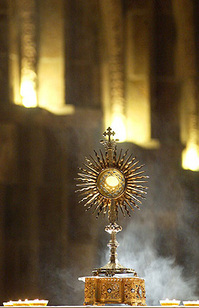 People can find a video of almost anything on YouTube: babies’ first steps, Saturday Night Live skits, news clips, concerts and now – to the shock of Catholics everywhere – desecration of the Eucharist.
People can find a video of almost anything on YouTube: babies’ first steps, Saturday Night Live skits, news clips, concerts and now – to the shock of Catholics everywhere – desecration of the Eucharist.
YouTube has long been a destination for Catholics seeking video clips of Masses, apologetics lectures or devotions, but now Catholic outrage is growing as the site has become home to a string of videos depicting acts of Eucharistic desecration, including flushing a host down the toilet, putting one in a blender, feeding one to animals, shooting one with a nail gun and more. “I don’t know what to say,” said a stunned Msgr. C. Eugene Morris, professor of sacramental theology at Kenrick Glennon Seminary in St. Louis, when told about the videos. “I am outraged that YouTube is tacitly supporting this and giving this behavior an audience.”
The most prominent series of videos come from one YouTube user who claims to steal a consecrated host every day and desecrate each one in a different way. His videos began two months ago with the user saying into a webcam that he denied the Holy Spirit, then splitting a host in half and eating it with disrespect.
Most of the videos only have a few hundred views – relatively low for YouTube standards – although the latest installment, “Eucharistic Desecration #33: Nail Gun,” has been watched over 1,000 times.
The user, who lists his first name as Dominique, has also posted a video of his receiving communion at an unidentified Catholic church and removing the host from his mouth in the church parking lot. Msgr. Morris said people need to “stand up” for their faith in cases like this. Some have taken up the challenge.
Thomas Serafin is president of the International Crusade for Holy Relics, an internet watchdog group of Catholic laymen. His group has been fighting online affronts to the Catholic Church, including the sale of the Eucharist and of relics of the saints online, for more than a decade. “YouTube has to be held accountable and stopped,” Serafin said from Los Angeles. “If Catholics don’t take a stand right now, they can expect such outrages to continue.”
Serafin added: “The internet is, in many ways, a new world, and it is our duty to evangelize this world, but we have to speak up and be heard to do that.”
YouTube’s content policy technically restricts users from posting videos that contain hate speech or “shocking and disgusting” elements.
“We encourage free speech and defend everyone’s right to express unpopular points of view,” YouTube’s Community Guidelines state. “But we don’t permit hate speech (speech which attacks or demeans a group based on race or ethnic origin, religion, disability, gender, age, veteran status, and sexual orientation/gender identity).”
YouTube spokesperson Kathleen Fitzgerald asked for additional links to the desecration videos, but did not respond to a request for comment prior to the publication of this story.
However, YouTube defines hate speech as “content that promotes hatred against members of a protected group. For instance, racist or sexist content may be considered hate speech. Sometimes there is a fine line between what is and what is not considered hate speech. For instance, it is generally okay to criticize a nation, but not okay to make insulting generalizations about people of a particular nationality.”
The guidelines add, “YouTube is not a shock site. Don’t post gross-out videos of accidents, dead bodies or similar things intended to shock or disgust.”
Users may “flag” offensive videos, which YouTube says will alert their reviewers to videos that may violate content guidelines. A video featuring the Eucharist desecrated with a knife was flagged by Headline Bistro staff but remains on YouTube.
“Here you have someone attacking another group, and there’s no outcry,” Msgr. Morris said. “We’re not hurting anybody or attacking other’s beliefs,” he added, saying he would ask perpetrators of Eucharistic desecration, “Why are you so concerned about this? Why is it your business?”
One name still making the rounds in YouTube and bloggers’ discussions on Eucharistic desecration is Paul Z. Myers, the University of Minnesota professor who asked his blog readers in July to “score” him “some consecrated communion wafers.”
“If any of you would be willing to do what it takes to get me some, or even one, and mail it to me, I’ll show you sacrilege, gladly, and with much fanfare,” Myers wrote in response to the case of a University of Central Florida student who stole a consecrated host the previous month.
Myers later posted a picture of a host – which he claimed was consecrated and sent to him via mail – as well as pages from the Koran and atheist Richard Dawkins’ “The God Delusion” in a trash can, underneath coffee grounds and a banana peel.
As for the current YouTube videos, Dominique cited Myers as inspiration for the video series. In terms of the response he’s received for his own acts of Eucharistic desecration, Dominique said most reactions are “quite funny.”
“The best I have are from moderate Catholics,” he wrote in an email to Headline Bistro. “Catholics who really believe that a cracker can become somebody after a magic ritual don’t get the point, but some moderate Catholics who see the wafer as a symbol of Jesus’ flesh realize something. Sometimes they disagree with what I do, but they realize that some of their friends are quite insane and that something must be done about that.”
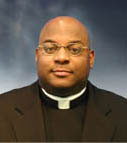 Msgr. Morris refuted Dominique’s portrayal of believing Catholics as “insane.”
Msgr. Morris refuted Dominique’s portrayal of believing Catholics as “insane.”
“If you don’t believe in the mystery of Christ, then of course you don’t understand the sublime mystery of the Eucharist,” Morris said.
“We have confidence,” he added, in what “(Christ) has said to us” in regards to the Eucharist. Morris also pointed out the many examples of men and women who died for their faith in the Eucharist over the past 2,000 years.
Serafin said people should call or write YouTube to demand that the videos be taken down. YouTube’s public relations email address is press@youtube.com
“Christ died on the cross for us,” said Serafin. “The least we can do is defend him in cases like this.”
Biological Evolution: Faith & Science Evaluate
An international conference “Biological Evolution: Facts and Theories. A Critical
 Appraisal 150 years after ‘The Origin of Species,'” will be held in Rome 3-7 March 2009.
Appraisal 150 years after ‘The Origin of Species,'” will be held in Rome 3-7 March 2009.
This conference is jointly organized by the Pontifical Gregorian University (Rome) and the University of Notre Dame (Indiana) coordinated by the Pontifical Council for Culture as a project of STOQ (Science, Theology and the ontological Quest).
Seeking to foster a dialogue between science and religion, between science and
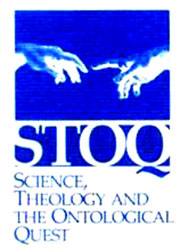 faith, three universities in Rome (Italy), under the coordination of the Pontifical Council for Culture, have launched an initiative entitled “Science, Theology and the Ontological Quest” (STOQ), a project that unites professionals from the fields of theology, philosophy and scientific investigation, in the common search for the truth.
faith, three universities in Rome (Italy), under the coordination of the Pontifical Council for Culture, have launched an initiative entitled “Science, Theology and the Ontological Quest” (STOQ), a project that unites professionals from the fields of theology, philosophy and scientific investigation, in the common search for the truth.
STOQ, following the teaching of the Church as found in documents like Fides et Ratio (Faith and Reason), published by Pope John Paul II in 1998.
“The Church needs science and science needs religion. Science purifies religion of error and superstition; religion purifies science of idolatry and false absolutes,” Cardinal Paul Poupard, President-emeritus of the Pontifical Council for Culture.
STOQ seeks to promote this dialogue by means of formative courses, in-depth investigations, publications, congresses and a student exchange program. Targeting professors and students alike, the project has three centers of investigation in each of the universities collaborating in the initiative:
–The Pontifical Gregorian University will concentrate on the foundations of philosophy of science.
–The Pontifical Lateran University will focus on the relation between the scientific and humanistic disciplines, especially Logic and Epistemology.
–The Pontifical Athenaeum Regina Apostolorum will focus on the relations among the fields of philosophy, theology and the science of life, especially through its faculty of Bioethics.
The STOQ project seeks to create a new mentality within the Catholic Church that is open to the challenges that science presents to society and our faith of today, while promoting a new outlook in the realms of science, seeking the truth and at the same time open to the mystery of transcendence of the human person.
Are you fit for mission? Bishop O’Donoghue is asking & the Church wants to know
The other day Bishop Patrick O’Donoghue of the Diocese of Lancaster, England, released a
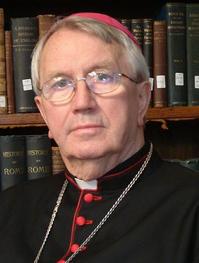 92-page document which is seen as highly critical of the Church in England since the Second Vatican Council. The Catholic Herald carries the story.
92-page document which is seen as highly critical of the Church in England since the Second Vatican Council. The Catholic Herald carries the story.
Several areas of concern are addressed by Bishop O’Donoghue: hope in Christ, Vatican II, Catholic identity, the work of the Trinity in our lives and in the Church, the role of the sacred. Liturgy, Divine Revelation’s hold on us, dogma, and various other points concerning society and culture.
The bishop’s document, “Fit for Mission?” seems insightful and is worth the time reading. The concerns that Bishop O’Donoghue has for the Church in his diocese, indeed for all of England are similar for those of us who live in North Americans. For that matter, they are the same concerns Monsignor Luigi Giussani had in the 1950’s Italy and later articulated by Popes John Paul II and Benedict XVI. Namely, do you have a personal relationship with Christ, do you adhere to the objectivity of the Church, is faith a moralism or a way of knowing, living and loving, does your destiny really matter to you?
From Resentment to Gratitude
Bishop Gregory J. Mansour recently wrote this piece on resentment for the Maronite Voice, the monthly magazine for the two Maronite eparchies in the United States. I think this brief article on resentment is helpful and will open new doors as to how we know ourselves and relate to others. For me it is clear, if we get our “house in order” then living as are made for becomes easier.
Thirty years ago, in his ground-breaking book on spirituality, the late Father Henri
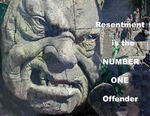 Nouwen described the spiritual life as a series of interior movements in which we go beyond our own self-centered plans in order to reach a deeper communion and authentic love for God and others. The book is appropriately entitled Reaching Out.
Nouwen described the spiritual life as a series of interior movements in which we go beyond our own self-centered plans in order to reach a deeper communion and authentic love for God and others. The book is appropriately entitled Reaching Out.
A movement “from resentment to gratitude” is described in the book. Father Nouwen says we ought to move from resenting the fact that we were not chosen, not honored, not loved or treated well, to a newfound gratitude for what we have been given, even a gratitude for the valuable lessons we learned from ill treatment. This can only happen when we are honest with ourselves and have the courage to feel once again our hurts and admit that God’s grace brought us through. In this way we maintain balance and can love others with a clean heart and peace of mind.
This “re-sentiment” (which literally means “feeling again”) allows us to bring all our hurts and disappointments to God, Healer and Lover of Mankind, and to turn from a bitter resentment to an inner peace and gratitude.
The destructive power of resentment abounds in society and even in the Church but so,
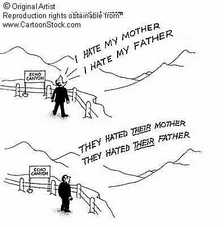 too, can gratitude. A deep spiritual conversion can take place with God’s grace, even in those who have been harshly treated. We see this in the lives of those who forgave their tormentors in war and imprisonment. Likewise, we see it in the lives of those whose sons, daughters, parents, spouses or friends have been innocently harmed or even killed. There are many examples of awe inspiring forgiveness from those who have been hurt, deprived, or disappointed and yet have found the power to forgive and to live the presence of God in peace and gratitude. It is true also of the like of the saints, from St. Stephen to the martyrs of today.
too, can gratitude. A deep spiritual conversion can take place with God’s grace, even in those who have been harshly treated. We see this in the lives of those who forgave their tormentors in war and imprisonment. Likewise, we see it in the lives of those whose sons, daughters, parents, spouses or friends have been innocently harmed or even killed. There are many examples of awe inspiring forgiveness from those who have been hurt, deprived, or disappointed and yet have found the power to forgive and to live the presence of God in peace and gratitude. It is true also of the like of the saints, from St. Stephen to the martyrs of today.
The seeds of new life and peace are present in every difficulty but we cannot see them without the belief in the power of love and a loving God. We must believe God’s grace can transform resentment into a life-giving gratitude. This is the meaning of the Cross. Resentment kills, but if we have the courage to face our resentments honestly and to reach out in love, then in the power of the Spirit of Jesus Christ, a sense of gratitude can bring new life, and as Jesus said, ” I came to give life, life in abundance” (John 10:10).
This article was first published in the Maronite Voice in August 2008.
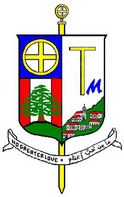 About the Author The Most Reverend Gregory John Mansour is the third eparch of the Eparchy of
About the Author The Most Reverend Gregory John Mansour is the third eparch of the Eparchy of
Saint Maron, Brooklyn. A native of Flint, Michigan, Mansour was educated at Western Michigan University, Our Lady of Lebanon Maronite Seminary, the Catholic University of America, and finally at the Pontifical Gregorian University. He is a teacher of Spiritual Theology. Pope John Paul II named Bishop Gregory to the Brooklyn eparchy in 2004.
Speaker Pelosi & Senator Biden got it wrong: being faithful means assenting to Truth!
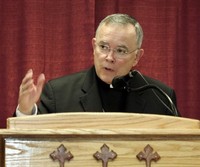 Let’s start where Archbishop Charles Chaput concludes his letter to Colorado Catholics: “the duty of the state and its officials is to serve the common good, which is always rooted in moral truth. A proper understanding of the ‘separation of Church and state’ does not imply a separation of faith from political life. But of course, it’s always important to know what our faith actually teaches.”
Let’s start where Archbishop Charles Chaput concludes his letter to Colorado Catholics: “the duty of the state and its officials is to serve the common good, which is always rooted in moral truth. A proper understanding of the ‘separation of Church and state’ does not imply a separation of faith from political life. But of course, it’s always important to know what our faith actually teaches.”
There seems to be a few people who, shall we say, are ignorant about what the Church teaches about abortion; some people seem invincibly ignorant when it comes to reasonable thinking on life issues and basic human rights as they think it is a matter of personal opinion and that the Church has never really and consistently that human life begins at conception. Listening to Madame Speaker Pelosi on Sunday’s “Meet the Press” and in other places Senators Obama and Biden in their political rhetoric, one knows pretty quickly that what they offer is thin gruel. Those who dissent from Catholic teaching ought to be honest and state that they in fact dissent from teaching rather than claim they are “good Catholics.” Contrary to Pelosi, the Church is not still making up her mind on matters pertaining to life. The fact is that Speaker Pelosi and Senator Biden, as Catholics, have not embraced the teaching and discipline of the Church. Their position, political and religious, is to publically dissent from the Church’s teaching on matters of life and therefore they ought to refrain from the reception of Holy Communion until they repent. Would that the Diocesan Ordinaries of these politicians who claim to be Catholic would do their job and teach and correct error! The salvation of souls is at stake.
According to science and faith (two legitimate ways of knowing), abortion is killing an
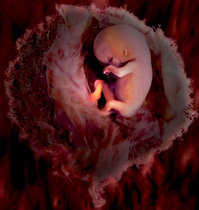 unborn human being is not a matter which is left to one’s mere opinion. In the face of evidence, it is doubtful that anyone can say with conviction that abortion doesn’t kill. Clearly the act of abortion revolves less around the choice of a woman to make decisions about “her” body than the fundamental idea which posits the possibility to abort a pregnancy so that a woman to be relieved of a problem or a mistake. There seems to be no reasonable way to argue with people who advocate for abortion until they see/hear the heart beat or feel the kick. The evidence, that is, the biological activity in a woman demonstrates the existence of life at conception. Just wait a month or later in a pregnancy and you will see confirmation that human existence is a fact. AND that fact is defined as a person, not a thing, nor a problem, nor a mistake.
unborn human being is not a matter which is left to one’s mere opinion. In the face of evidence, it is doubtful that anyone can say with conviction that abortion doesn’t kill. Clearly the act of abortion revolves less around the choice of a woman to make decisions about “her” body than the fundamental idea which posits the possibility to abort a pregnancy so that a woman to be relieved of a problem or a mistake. There seems to be no reasonable way to argue with people who advocate for abortion until they see/hear the heart beat or feel the kick. The evidence, that is, the biological activity in a woman demonstrates the existence of life at conception. Just wait a month or later in a pregnancy and you will see confirmation that human existence is a fact. AND that fact is defined as a person, not a thing, nor a problem, nor a mistake.
So the Church has been correct for two millennia when she teaches that “Abortion kills an unborn,
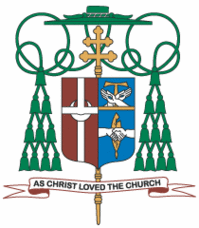 developing human life. It is always gravely evil, and so are the evasions employed to justify it. Catholics who make excuses for it – whether they’re famous or not – fool only themselves and abuse the fidelity of those Catholics who do sincerely seek to follow the Gospel and live their Catholic faith.”
developing human life. It is always gravely evil, and so are the evasions employed to justify it. Catholics who make excuses for it – whether they’re famous or not – fool only themselves and abuse the fidelity of those Catholics who do sincerely seek to follow the Gospel and live their Catholic faith.”
Read what Archbishop Chaput teaches his people and apply it to your circumstance. The teaching is correct and objective, faithful and brilliant.
Avery Robert Cardinal Dulles, SJ: Vir Ecclesiasticus
Today is the 90th birthday of His Eminence, Avery Cardinal Dulles. At Fordham University’s
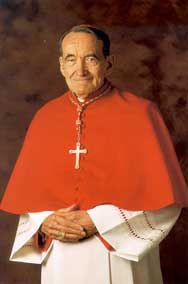 Chapel about 175 people gathered to thank God for his many blessings and to offer Thanksgiving for the life and work of this great man of the Church: The Sacrifice of the Mass was offered by the Cardinal’s fellow Jesuits and some non-Jesuit priests. Family and friends, the high and the lowly and everyone in between came to celebrate with Cardinal Dulles. His longtime friend and Assistant, Sister Anne-Marie Kirmse, O.P. made today a wonderful event for many friends. No one could want nor hope for a better friend than Sister Anne-Marie!
Chapel about 175 people gathered to thank God for his many blessings and to offer Thanksgiving for the life and work of this great man of the Church: The Sacrifice of the Mass was offered by the Cardinal’s fellow Jesuits and some non-Jesuit priests. Family and friends, the high and the lowly and everyone in between came to celebrate with Cardinal Dulles. His longtime friend and Assistant, Sister Anne-Marie Kirmse, O.P. made today a wonderful event for many friends. No one could want nor hope for a better friend than Sister Anne-Marie!
THE most heart-filled gesture was seeing Edward Cardinal Egan, the Archbishop of New York, pushed Cardinal Dulles in and out of the Chapel. What a perfect example of humanity!!! Later, Cardinal Egan joked at a reception that he doesn’t regularly push Jesuits around much less Jesuit Cardinals, but he said it was his honor to push Dulles because of their longtime friendship and esteem; they are classmates in the College of Cardinals.
The Church gave us this prayer for the 21st Sunday Through the Year to praise God; it also
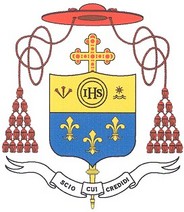 speaks to the person and work of Cardinal Dulles.
speaks to the person and work of Cardinal Dulles.
O God, You who make the minds of the faithful to be of one will,
grant unto Your people to love that thing which You command,
to desire that which You promise,
so that, amidst the vicissitudes of this world,
our hearts may there be fixed where true joys are.
(trans. Fr. John Zuhlsdorf)
I first met then Father Dulles in September 1997 at a Communio Circle in Easton, CT, hosted by the remarkable Maria Shrady. Never did I imagine what has happened to all of us since then: some that group became better theologians, some pastors of souls, some have met the Lord face-to-face, some have moved to new work and some have reached 90 years of life as a cardinal of the Holy Roman Church. Another terrific thing happened today: the opportunity to renew friendships with many whom I esteem as people and as theologians. While our Communio group has disbanded for now, we decided in 2009 to reconstitute ourselves to work on theological matters of importance under the inspiration of Dulles and under the inspiration of another venerable cardinal, Hans Urs von Balthasar (a former Jesuit I might add who died 28 June 1988).
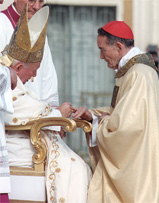 Cardinal Dulles himself in this way:
Cardinal Dulles himself in this way:
“Although I cannot rival the generous dedication of St. Paul and Ignatius of Loyola, I am, like them, content to be employed in the service of Christ and the Gospel, whether in sickness or health, in good repute or ill. I am immesurably grateful for the years in which the Lord has permitted me to serve him in a society that bears as its motto: Ad maiorum Dei gloriam. I trust that his grace will not fail me, and that I will not fail his grace, in the years to come” (A Testimonial of Grace, 50th anniv. edition).
The silent but very present witness of Avery Dulles is powerful and a strikingly stark approach than what we see in many parts of our society where the infirmed are moved to the margins of life. On the contrary, these are the people that most make present the beautiful of Jesus Christ. Personal purification and suffering continues to witness, at least to me, to the value of life and powerful presence of the Infinite. Dulles said of himself in the 39th McGinley Lecture, 21 April 2008:
The good life does not have to be an easy one, as our blessed Lord and the saints have
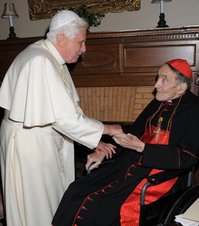 taught us. Pope John Paul II in his later years used to say, “The Pope must suffer.” Suffering and diminishment are not the greatest of evils, but are normal ingredients in life, especially in old age. They are to be accepted as elements of a full human existence. Well into my 90th year I have been able to work productively. As I become increasingly paralyzed and unable to speak, I can identify with the many paralytics and mute persons in the Gospels, grateful for the loving and skillful care I receive and for the hope of everlasting life in Christ. If the Lord now calls me to a period of weakness, I know well that his power can be made perfect in infirmity. “Blessed be the name of the Lord!”
taught us. Pope John Paul II in his later years used to say, “The Pope must suffer.” Suffering and diminishment are not the greatest of evils, but are normal ingredients in life, especially in old age. They are to be accepted as elements of a full human existence. Well into my 90th year I have been able to work productively. As I become increasingly paralyzed and unable to speak, I can identify with the many paralytics and mute persons in the Gospels, grateful for the loving and skillful care I receive and for the hope of everlasting life in Christ. If the Lord now calls me to a period of weakness, I know well that his power can be made perfect in infirmity. “Blessed be the name of the Lord!”